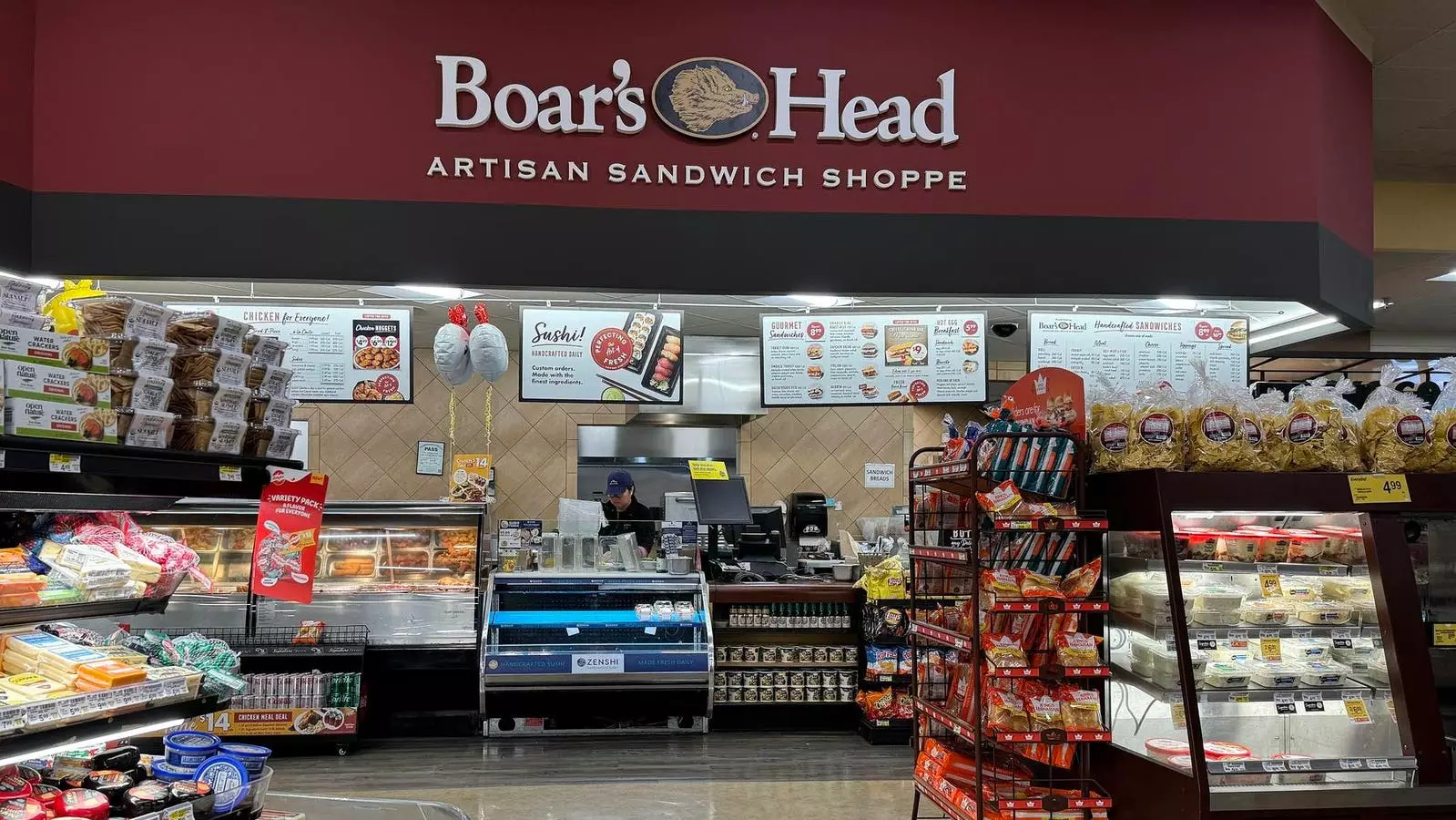Boar’s Head has entrenched itself as a titan in the deli meat industry, a feat achieved through an intricate web of business strategy marked by controversy. Recent revelations from former employees and insiders paint a vivid picture of a corporate culture that thrives on intimidation and aggressive retail strategies. As the largest deli meat brand in America, Boar’s Head’s influence stretches far beyond just its products. Understanding the mechanisms behind this success offers crucial insights into not only the company but also the broader food industry’s practices and vulnerabilities.
The figure of speech “bullying” might seem harsh, yet former employees articulate a disconcerting reality within Boar’s Head. Interviews reveal a chilling hierarchy where intimidation cascades down from corporate leadership to distributors and eventually to the retailers. One employee described the corporate ethos as one that fosters an environment of fear, where the company’s reputation for aggression serves as both a shield and a weapon against their competitors. This tactic aligns unsettlingly with the practices of many corporate giants that deploy similar strategies to maintain dominance in their respective markets.
The underlying implications of such behavior extend beyond mere interpersonal relations—these practices can stifle innovation and competition. Retailers may feel coerced into prioritizing Boar’s Head products over potentially better or more ethically sourced options, effectively limiting consumer choice. This problem isn’t limited to one brand or sector; it serves as a reflection of a broader trend in the food industry, where the aggression of powerful players shapes market landscapes.
Despite the gravity of these allegations, Boar’s Head publicly denies any wrongdoing. This confrontation between former employees and the company raises significant questions about corporate transparency and accountability. The gap between corporate narrative and employee experience often reveals uncomfortable truths about company culture, ethics, and the treatment of workers.
Consumers place enormous trust in brands, especially those that claim to prioritize quality and integrity. The very fabric of consumer choice is often woven with the threads of brand narratives that may not always align with reality. As scrutiny amplifies, companies like Boar’s Head must contend not only with the potential fallout of these allegations but also the broader implications for consumer trust and brand loyalty.
As the 2024 U.S. presidential election approaches, the insidious nature of food security issues on the American political agenda becomes even more evident. Amid intense debates on pressing issues, the plight of food insecurity remains conspicuously absent from mainstream discourse. This neglect reflects a significant disconnect between political rhetoric and on-the-ground realities faced by millions of Americans who struggle with hunger.
Moreover, the role of fossil fuels in agriculture—a critical, yet seldom discussed topic—highlights the urgent need for reform in how our food systems operate. Understanding the intrinsic link between energy and food supply chains exposes vulnerabilities that can be manipulated by powerful corporations. The disconnection between food production and consumption, exacerbated by systemic negligence, is imperative to address if we aim to create a more equitable and sustainable food system.
As consumers, we are bestowed with the power to influence the dynamics of food production through informed choices. It is incumbent upon us to peel back the layers of corporate narratives and scrutinize the ethical implications of our food sources. As the revelations regarding Boar’s Head illustrate, there is often more beneath the surface of a brand’s success. Whether through aggressive tactics or corporate intimidation, the conversation surrounding food and its supply chains must evolve to center on resilience, sustainability, and integrity.
In navigating these complexities, one must remain vigilant and advocate for transparency and accountability in the food industry. Voices from inside the industry, like those of former Boar’s Head employees, are crucial in holding companies accountable and fostering a culture of ethical business practices. Ultimately, a shift towards a more just food system hinges on acknowledging and addressing the multifaceted challenges that permeate the industry.

